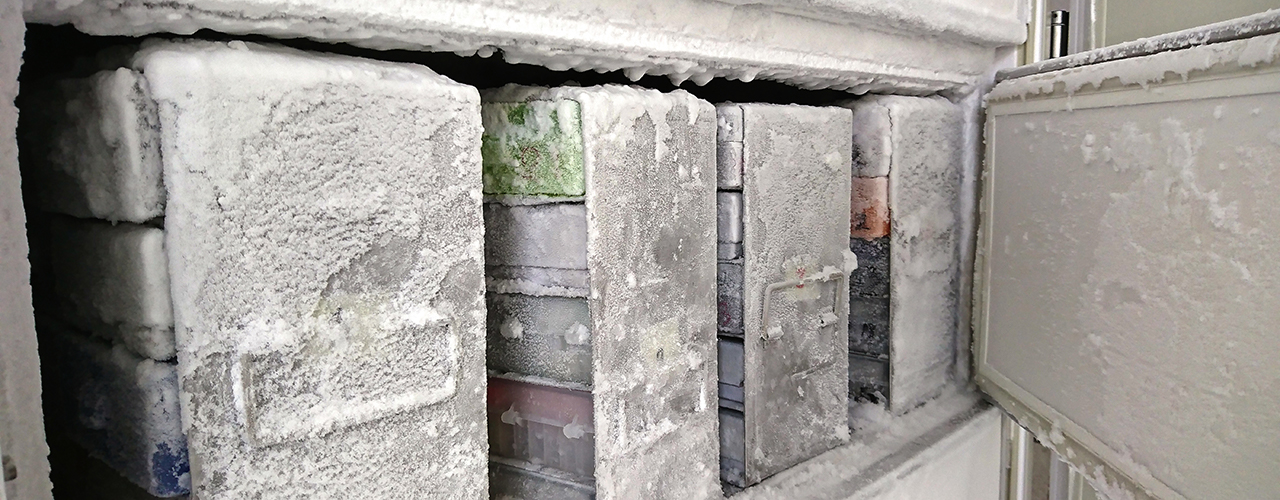
Reviews on Cryopreservation of PBMCs, CD4+ and Other Cells from Blood
Shirley Pan, Xiaotian Deng
2018-06-28 00:49:30 in Classics in Cryopreservation
Although cryopreservation is widely used in research labs, some researchers have concerns that cryopreserved blood cannot be an effective replacement to fresh samples. Since the conventional freezing protocols are long and complex, it is very easy for practitioners to make mistakes without being aware in the process. Therefore, it is possible (or, very likely) that the poor recovery is a result from human errors, instead of the technology itself. Here we have collected a few research articles, which explain that the cryopreservation process does not alter many important properties of the samples. The fact that cryopreserved samples can be a good-enough alternative for clinical trial might have some good implication for drug development.
1) CD4+ and CD8+ cells in cryopreserved human PBMC maintain full functionality in cytokine ELISPOT assays (Christian RKreher 2003)
CD4+ and CD8+ are frequently used in different immunology research. In this research, blood was drawn at three different time points, and their PBMC were tested fresh and post-thaw. The results from this research showed that the frequencies and type1/type 2 cyotkine signature of recall antigen-specific CD4+ and CD8+ cells are unaffected by cryopreservation.
2) Preservation of Lymphocyte Immunophenotype and Proliferative Responses in Cryopreserved Peripheral Blood Mononuclear Cells from Human Immunodeficiency Virus Type 1-Infected Donors: Implications for Multicenter Clinical Trials (Keith A. Reimann 2000)
New therapeutic strategies for HIV-1 infection need a relatively large quantity of blood samples to be tested. However, if the test and analysis has to be conducted on fresh samples, the development for this research will be hugely slowed down. This research shows that cryopreserved PBMC can be potentially used for immunophenotyping and functional testing in multicenter AIDS clinical trials. And this maybe inspiring for other diseases as well.
3) Cryopreservation of peripheral blood mononuclear cells does not significantly affect the levels of spontaneous apoptosis after 24-h culture. (Riccio EK 2002)
Cryopreservation can not only be a solution for accumulating samples collected at different time points, but also a solution for transporting samples from geographically remote regions. This research showed that cryopreserved blood mononuclear cells do NOT show a lower level of spontaneous apoptosis after culturing.
4) Cryopreservation of mature monocyte-derived human dendritic cells for vaccination: influence on phenotype and functional properties ( (Westermann J1 2003)
Tumor antigen-loaded dentritic cells(DC) have been in the center of cell therapy. The possbility that cryopreserved DC can be suitable for clinical tests or even application is encouraging for both patients and scientists. This research shows that cryopreservation does NOT cause significant changes in the phenotype or function of DC. This should adds more practicality in the future application of DC therapy.
5) Temperature fluctuations during deep temperature cryopreservation reduce PBMC recovery, viability and T-cell function (Anja Germann 2013)
The current process of cryopreservation is complex, and the duration of storage is long. During this entire process, inattentive temperature fluctuation can cause harm to samples. This research show that samples handled under cyclical temperature shifts during low temperature storage reduces cell viability, recovery and immune response against specific-antigens.
Side note: our thermal-insulated MetaLocker™ can help to reduce temperature fluctuation during the storage and transportation process. It is designed to optimize viability from different aspects of the process.
Bibliography
Anja Germann, Young-Joo Oh, Tomm Schmidt, Uwe Schon, Heiko Zimmermann, Hagen von Briesen. "Temperature fluctuations during deep temperature cryopreservation reduce PBMC recovery, viability and T-cell function Author links open overlay panel." Cryobiology, October 2013: 193-200.
Christian RKreher, Markus TDittrich, RobertGuerkov, Bernhard OBoehm, MagdalenaTary-Lehmann. "CD4+ and CD8+ cells in cryopreserved human PBMC maintain full functionality in cytokine ELISPOT assays." Journal of Immunological Methods, July 2003: 79-93.
Keith A. Reimann, Miriam Chernoff, Cynthia L. Wilkening, Christine E. Nickerson, Alan L. Landay, and The ACTG Immunology Advanced Technology Laboratories. "Preservation of Lymphocyte Immunophenotype and Proliferative Responses in Cryopreserved Peripheral Blood Mononuclear Cells from Human Immunodeficiency Virus Type 1-Infected Donors: Implications for Multicenter Clinical Trials." Clinical and Diagnostic Laboratory Immunology, May 2000: 352–359.
Riccio EK, Neves I, Banic DM, Corte-Real S, Alecrim Md, Morgado M, Daniel-Ribeiro CT, Ferreira-da-Cruz Mde F. "Cryopreservation of peripheral blood mononuclear cells does not significantly affect the levels of spontaneous apoptosis after 24-h culture." Cryobiology 45, no. 2 (Oct 2002): 127-34.
Westermann J1, Körner IJ, Kopp J, Kurz S, Zenke M, Dörken B, Pezzutto A. "Cryopreservation of mature monocyte-derived human dendritic cells for vaccination: influence on phenotype and functional properties." Cancer Immunol Immunother., Febuary 2003: 194-8.
